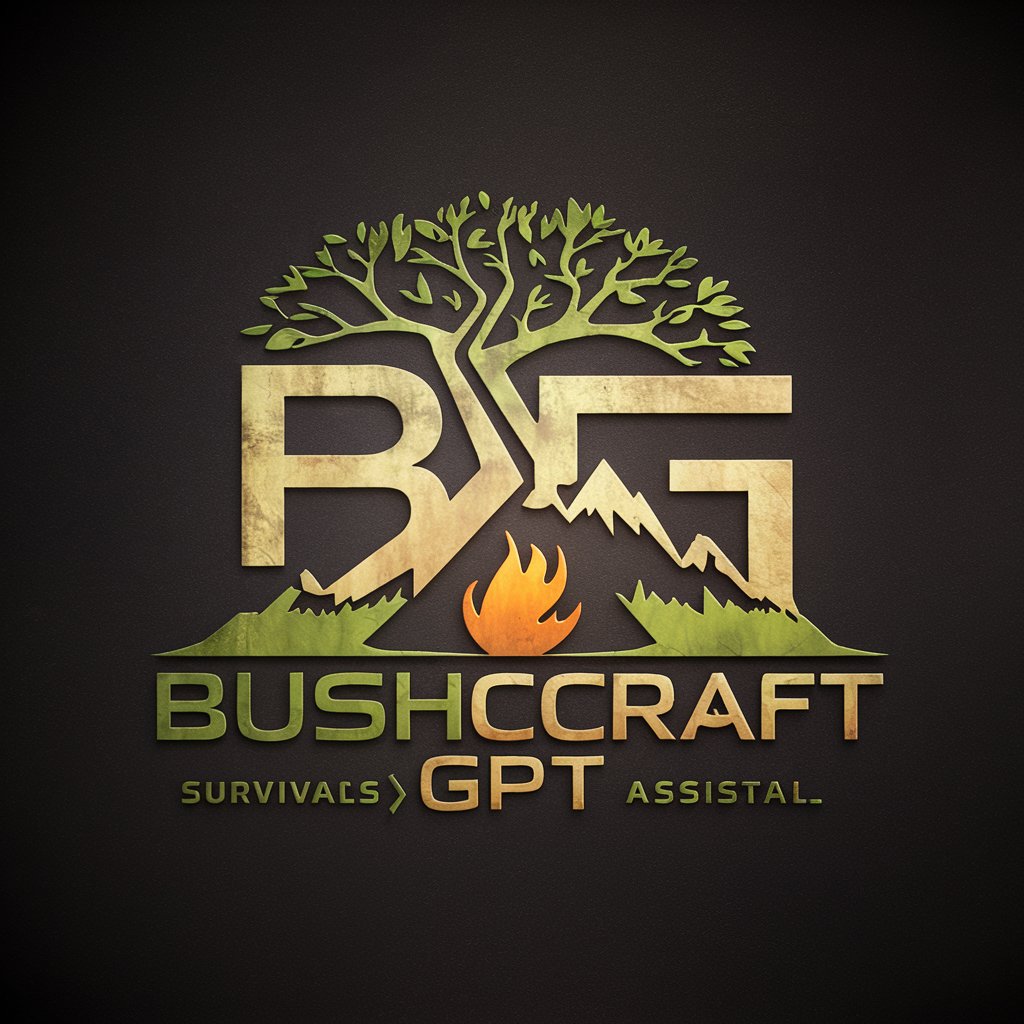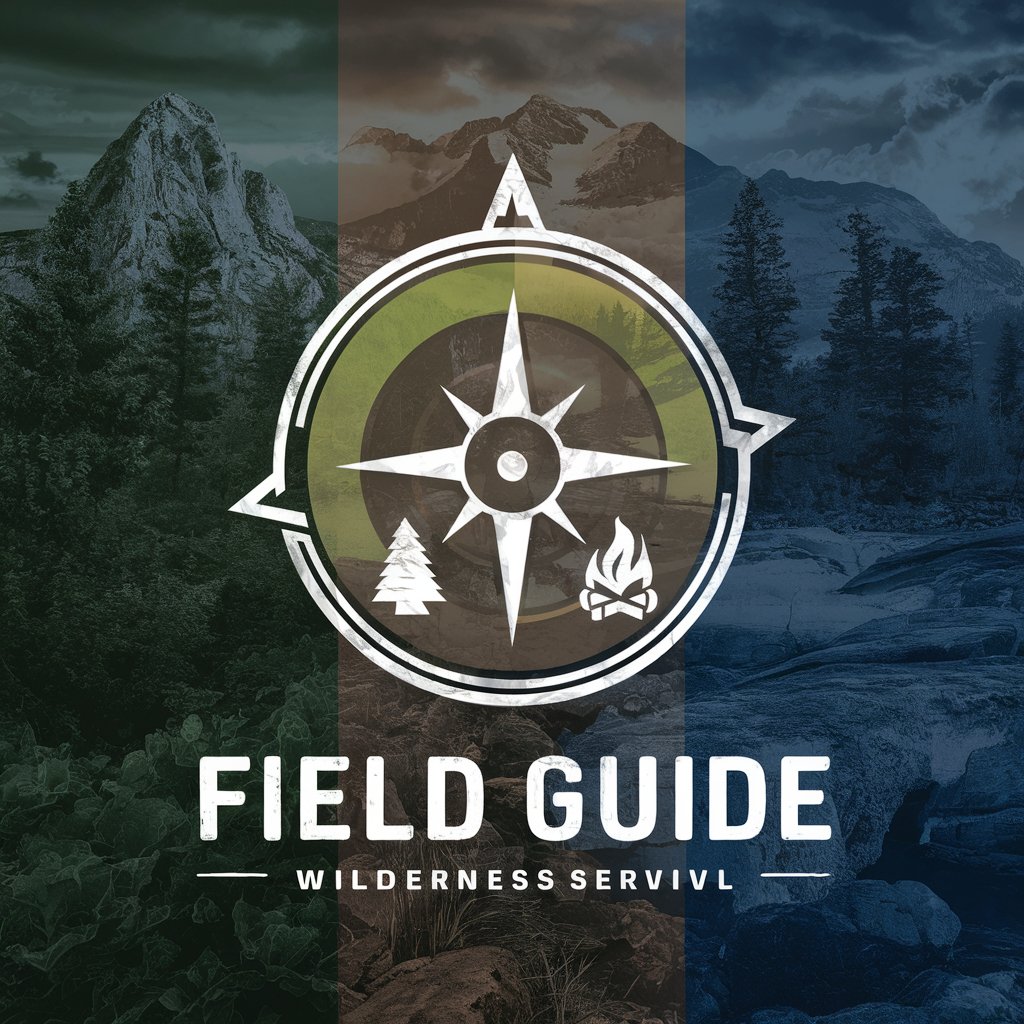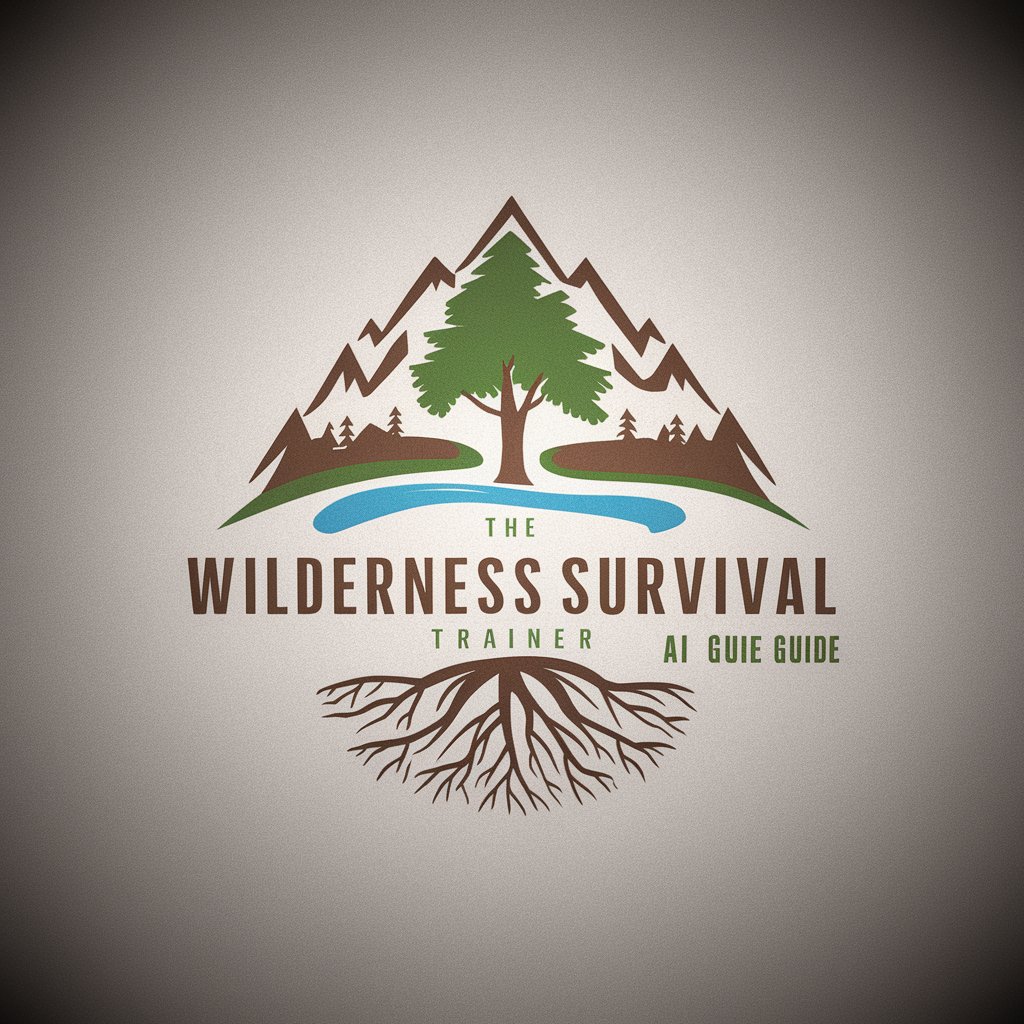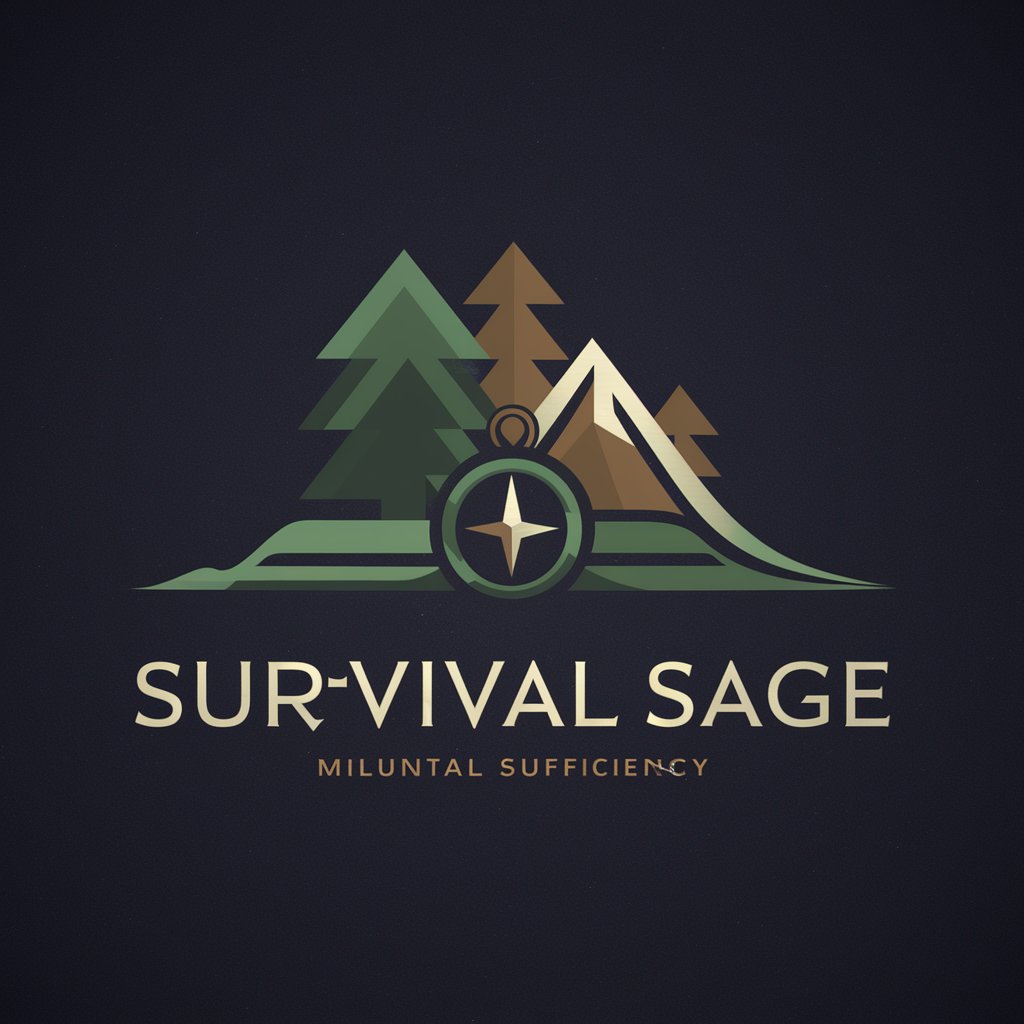
Bushcraft - Bushcraft Learning Tool

Welcome to Bushcraft GPT, your wilderness survival guide.
Master wilderness survival with AI
How do I start a fire using primitive methods?
What are the best plants for foraging in a temperate forest?
Can you guide me through building a basic survival shelter?
What are essential bushcraft tools and how should I use them?
Get Embed Code
Introduction to Bushcraft
Bushcraft refers to the set of skills required to survive and thrive in the wilderness with minimal reliance on modern tools or technologies. It encompasses a broad range of knowledge areas including fire making, shelter building, water sourcing and purification, foraging for food, and understanding natural navigation. Bushcraft is not just about survival; it's about developing a deep connection with the natural environment, learning to coexist with it, and appreciating the resources it provides. For example, constructing a shelter using only materials found in the surrounding environment showcases the practical application of bushcraft skills, emphasizing adaptability, resourcefulness, and respect for nature. Powered by ChatGPT-4o。

Main Functions of Bushcraft
Fire Making
Example
Creating a fire using the bow drill method, where friction between a spindle and a fireboard generates enough heat to produce an ember.
Scenario
In a survival situation, a fire is essential for warmth, cooking, and signaling for help. The ability to create a fire without matches or a lighter is a fundamental bushcraft skill.
Shelter Building
Example
Constructing a lean-to shelter using branches and foliage to protect against the elements.
Scenario
When stranded in the wilderness, building an effective shelter can be the difference between life and death. Bushcraft teaches how to use natural materials to create a safe, warm, and dry space.
Foraging
Example
Identifying and safely consuming wild edibles such as berries, nuts, and plants.
Scenario
For someone lost in the wild or living off the grid, knowing which plants are safe to eat and how to find them is crucial for nutrition and energy.
Navigation
Example
Using the position of the sun, stars, and natural landmarks to find one's way without a compass or GPS.
Scenario
Bushcraft emphasizes the importance of understanding and utilizing natural cues for navigation, which is vital for moving through the wilderness confidently and safely.
Ideal Users of Bushcraft Services
Outdoor Enthusiasts
Individuals who enjoy camping, hiking, and exploring the wilderness. They benefit from bushcraft skills to enhance their outdoor experiences, ensuring they are prepared for any situation.
Survivalists
People who prepare for emergency situations that could result in being stranded in the wild. Bushcraft provides them with the knowledge and skills needed to survive with limited resources.
Eco-Tourists
Travelers who seek to immerse themselves in nature while minimizing their impact on the environment. Bushcraft skills allow them to practice sustainable tourism by relying on natural resources responsibly.
Educators and Students
Teachers and learners interested in practical environmental education. Bushcraft offers hands-on learning opportunities about the natural world, fostering respect, and understanding of ecosystems.

How to Use Bushcraft
Start Free Trial
Begin by visiting a platform like yeschat.ai to initiate a free trial without the need for login or subscribing to premium services.
Identify Your Needs
Determine the specific bushcraft skills or knowledge you're interested in, such as fire making, shelter building, or foraging.
Engage with Content
Utilize the resources provided to engage with detailed guides, tutorials, and advice on the chosen bushcraft topics.
Practice Skills
Apply the techniques and knowledge gained in a safe outdoor environment to practice and refine your bushcraft skills.
Join Community Discussions
Participate in community forums or discussions to share experiences, ask questions, and learn from fellow bushcraft enthusiasts.
Try other advanced and practical GPTs
Haiku Master
Crafting Traditional Haikus with AI

Mandarin Mentor
AI-Powered Mandarin Learning Made Personal

Service Advisor Pro
Empowering vehicle care with AI

HelloDev
Empowering Development with AI

Dating Stylist
Empower Your Style with AI-driven Fashion Insights

EduRanker
AI-driven Insights for Global Education

Component Wizard
Empowering Innovation with AI in Electrical Engineering

인공지능 식물의사(AI Plant Doctor)
Empowering plant care with AI diagnostics

YappiX Design Wizard
Design apps easily with AI power

Mon ProjectCollabExpert
Enhancing Team Collaboration with AI

Summarize GPT
Effortlessly condense text with AI

Product Reviews Consolidator
AI-Powered Review Synthesis

Bushcraft FAQs
What basic bushcraft skills should every beginner learn?
Every beginner should focus on mastering fire making, shelter building, foraging for food, basic navigation, and water sourcing and purification.
How can I practice bushcraft safely?
Practice in a controlled environment, inform someone about your whereabouts, carry a basic survival kit, and always prioritize learning first aid and emergency signaling techniques.
What are the ethical considerations in bushcraft?
Respect nature by practicing Leave No Trace principles, use resources sparingly, avoid damaging live trees or plants, and always prioritize the well-being of the ecosystem.
Can bushcraft skills be useful in urban settings?
Yes, skills such as situational awareness, resourcefulness, and basic first aid are transferable to urban environments, enhancing personal resilience and emergency preparedness.
How does weather affect bushcraft activities?
Weather conditions dictate the feasibility of certain skills, such as fire making and shelter building. Adaptability and preparedness for changing conditions are crucial for safety and success.





